Community-Led MEAL: What is it and should you use it.
The Context
Sustainable Development Goal (SDG) #16 calls for building participatory, effective, accountable institutions “at all levels”. In order to ensure the SDGs are sustainable, the people who are most affected by their community’s development should be drivers of their change. New ways of working are needed to support the decolonization of development, including monitoring and evaluation. Frameworks and tools that support true participation, grassroots innovation, and empowerment of vulnerable communities will help to catalyze this process. Within this context, Salanga promotes that any information gathered should first be owned and used by those who are impacted the most.
What is CoLMEAL?
Watch the webinar recording or keep reading below!
Salanga defines Community-Led Monitoring, Evaluation, Accountability and Learning (CoLMEAL) as an approach to MEAL that capacitates diverse key community members/change agents, including the marginalized and vulnerable, to continually monitor, analyze, share, and reflect on progress against their community development plans based on outcomes and indicators/metrics they define to take action to achieve their goals/vision. This synergizes well with feminist MEAL approaches.

Why use CoLMEAL?
- To ensure key community stakeholders have the power of information which enables them to:
- Track the progress of their own development plans against performance indicators they themselves choose and design;
- Analyze, make sense of, use and share results with key stakeholders and duty bearers in their community to learn and adapt their vision and plans for change in ways that are integrated into local funding and planning cycles;
- Generate evidence and recommendations that influence policy and decision-making processes;
- Hold duty-bearers and other development actors accountable for their decisions, actions, and outcomes as well as for the quality of program and service provision to the community; and
- Self-esteem building and inclusion of those who are among the most vulnerable and marginalized in target communities.
- It strengthens sustainability: When community systems are strengthened to consistently collect, review, analyze, and reflect on information that shows the progress they are making towards their goals and desired impacts, they will intuitively take action to address gaps and share their successes.
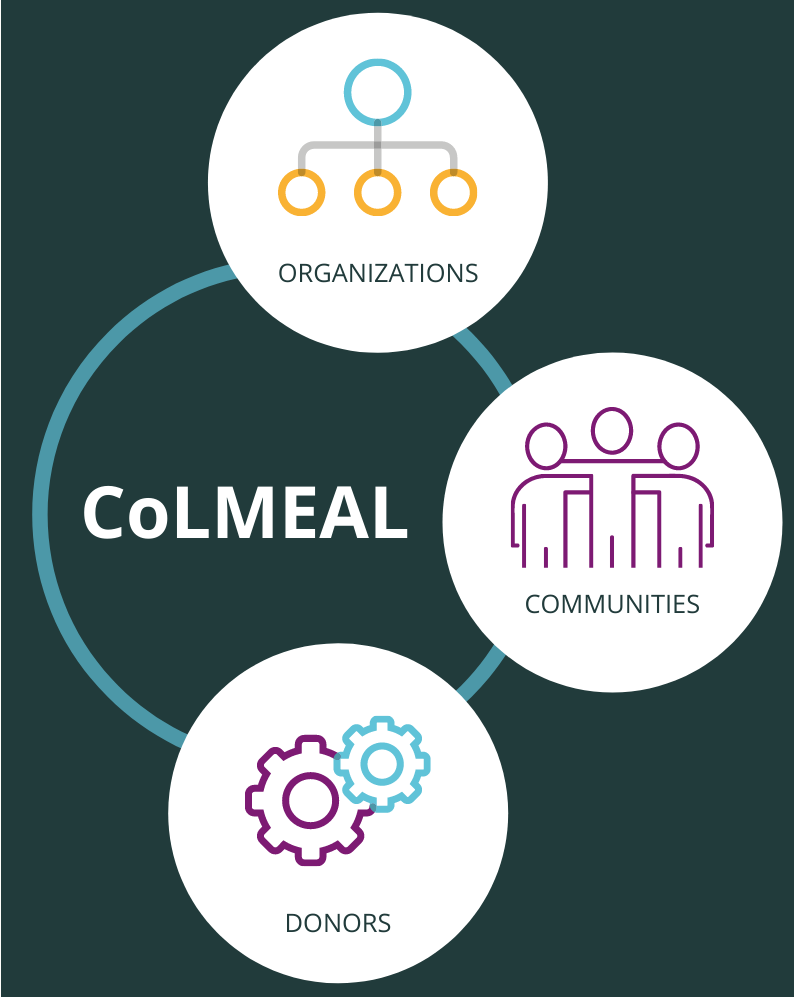
Who is CoLMEAL for?
- Communities first and foremost, usually represented by key community stakeholders, including the marginalized and vulnerable
- Organizations and their implementing partners who are interested in catalyzing the impact of their programmatic interventions and committed to strengthening sustainability by applying empowerment and participation principles to their MEAL processes.
- Donors who are interested in deepening the impact of the programs they are funding.
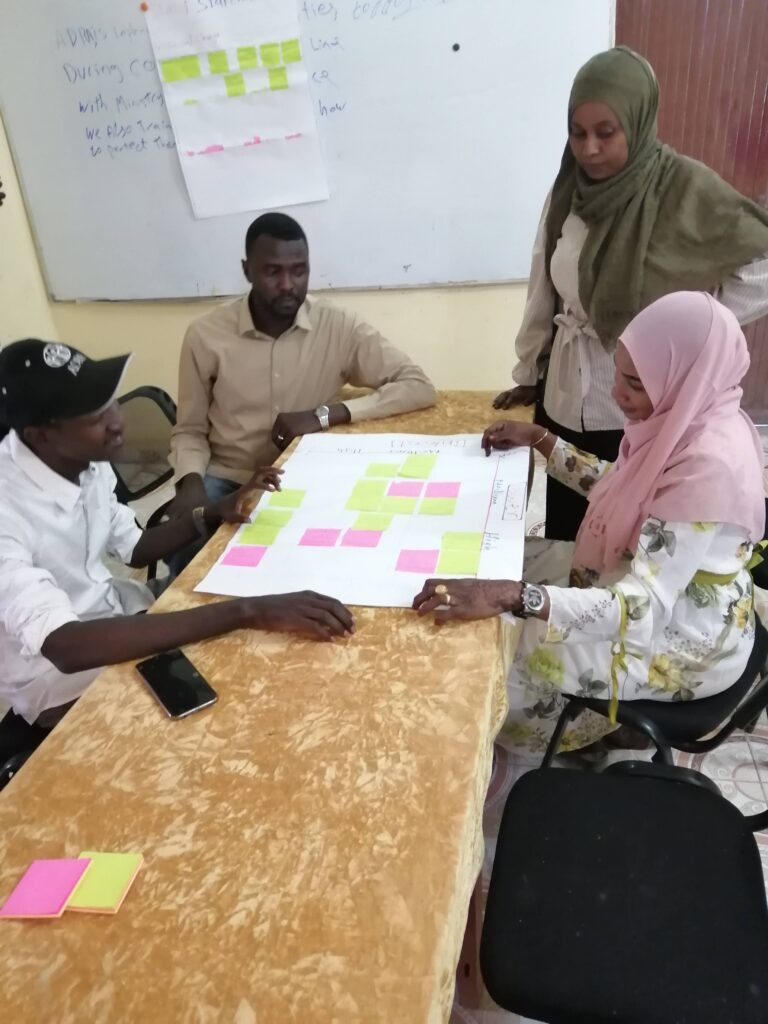
When can I use CoLMEAL?
- When the donor, the lead organization, its implementing partners and the project team are willing to:
- Fully test, learn and adapt the CoLMEAL process
- Allocate funds, time, staff, patience, enthusiasm and trust for the CoLMEAL process
- Be open to hearing the community perceptions, see development from the community’s worldview, and listen to the community’s feedback and recommendations
- When key community stakeholders are:
- Clear about the importance of the MEAL process and the benefits they can derive from engaging, leading and participating;
- Willing to test and learn from the CoLMEAL process; and
- Interested and have the time to participate in the process, including those who are vulnerable and marginalized.
Want to learn more? Stay-tuned for our next post “The Benefits and Challenges of CoLMEAL”. Join our mailing list below or follow us on LinkedIn so you don’t miss the next update!
If you have any questions about CoLMEAL leave them at the bottom of this post, or join our discussion on LinkedIn!
Read the CoLMEAL article series
- Why CoLMEAL can help development
- The Benefits and Considerations of CoLMEAL
- Is your organization ready for CoLMEAL? (coming soon)

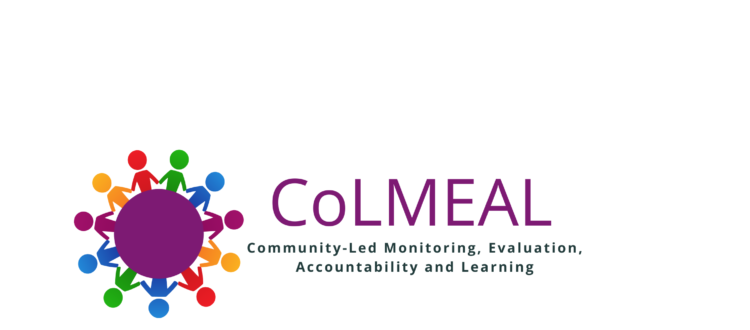
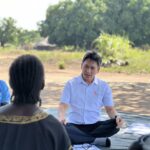
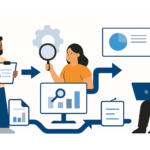

Like this .Its a good engaging approach and thank you for your choosing to focus on this .But,there is a need to take into account significantly the context analysis …Nowadays ,most of community projects are around one year ,is this for example :How about faisability in this case ?…For an emergeny response is it possible to make a joint monitoring plan with the affected people honesty ?….
Thank you for this feedback. You are absolutely right. Context and project / organization readiness of integrating the ColMEAL approach in a project is part of the preliminary work that we believe is essential for an organization to determine the feasibility of ColMEAL. Keep an eye out for more articles and webinars on CoLMEAL to learn more about these steps and how to know whether and how your project could benefit from the ColMEAL approach. https://salanga.org/webinar-series-community-led-monitoring-evaluation-accountability-and-learning-colmeal/?_thumbnail_id=8914
The answers to the question “when can I use ColMEAL” are also the major challenges in the implementation and sustainability of community-based program.
While we don’t expect the approach to be too structured, it will be more relevant it parameters for sustainability will be defined to measure effectiveness.
In all, congratulations for spearheading ColMEAL. All the best.
Thank you!
Formidable! La responsabilisation des communautés à la base est le point de départ de toute action à leur profit et de manière inclusive. De par mon expérience, je suis convaincu que la prise en compte de la vulnérabilité est le meilleur moyen pour aider à l’atteinte des ODD. Mais il me semble que beaucoup d’actions échouent de nos jours à cause de l’exclusion; à cause de choix stratégiques souvent opérés à la place des acteurs principaux.
Ce cadre que vous avez créé et proposé est la voie de salut pour les plus vulnérables. J’y adhère.
Bon vent!!!
Merci!